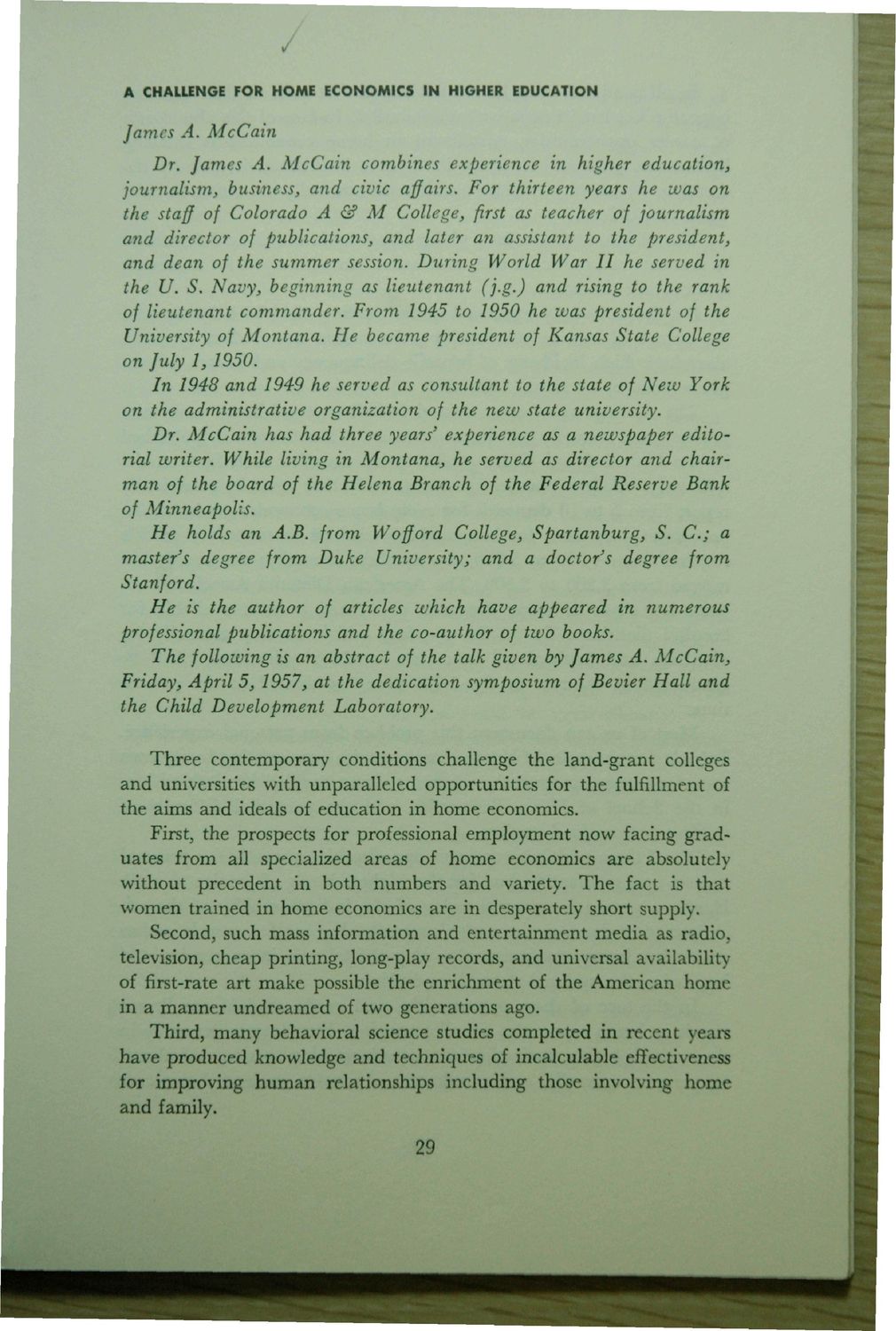| |
| |
Caption: Dedication - Home Economics - Challenge of Home Economics
This is a reduced-resolution page image for fast online browsing.

EXTRACTED TEXT FROM PAGE:
/ A CHALLENGE FOR HOME ECONOMICS I N HIGHER EDUCATION James A. McCain Dr. James A. McCain combines experience in higher education, journalism, business, and civic affairs. For thirteen years he was on the staff of Colorado A & M College, first as teacher of journalism and director of publications, and later an assistant to the president, and dean of the summer session. During World War II he served in the U. S. Navy, beginning as lieutenant (j.g.) and rising to the rank of lieutenant commander. From 1945 to 1950 he was president of the University of Montana. He became president of Kansas State College on July 1,1950. In 1948 and 1949 he served as consultant to the state of New York on the administrative organization of the new state university. Dr. McCain has had three years9 experience as a newspaper editorial writer* While living in Montana, he served as director and chairman of the board of the Helena Branch of the Federal Reserve Bank of Minneapolis. He holds an A.B. from Wofford College, Spartanburg, S. C; a master's degree from Duke University; and a doctor's degree from Stanford. He is the author of articles which have appeared in numerous professional publications and the co-author of two books. The following is an abstract of the talk given by James A. McCain, Friday, April 5,1957, at the dedication symposium of Bevier Hall and the Child Development Laboratory. Three contemporary conditions challenge the land-grant colleges and universities with unparalleled opportunities for the fulfillment of the aims and ideals of education in home economics. First, the prospects for professional employment now facing graduates from all specialized areas of home economics are absolutely without precedent in both numbers and variety* The fact is that women trained in home economics are in desperately short supply* Second, such mass information and entertainment media as radio, television, cheap printing, long-play records, and universal availability of first-rate art make possible the enrichment of the American home in a manner undreamed of two generations ago. Third, many behavioral science studies completed in recent years have produced knowledge and techniques of incalculable effectiveness for improving human relationships including those involving home and family. 29
| |